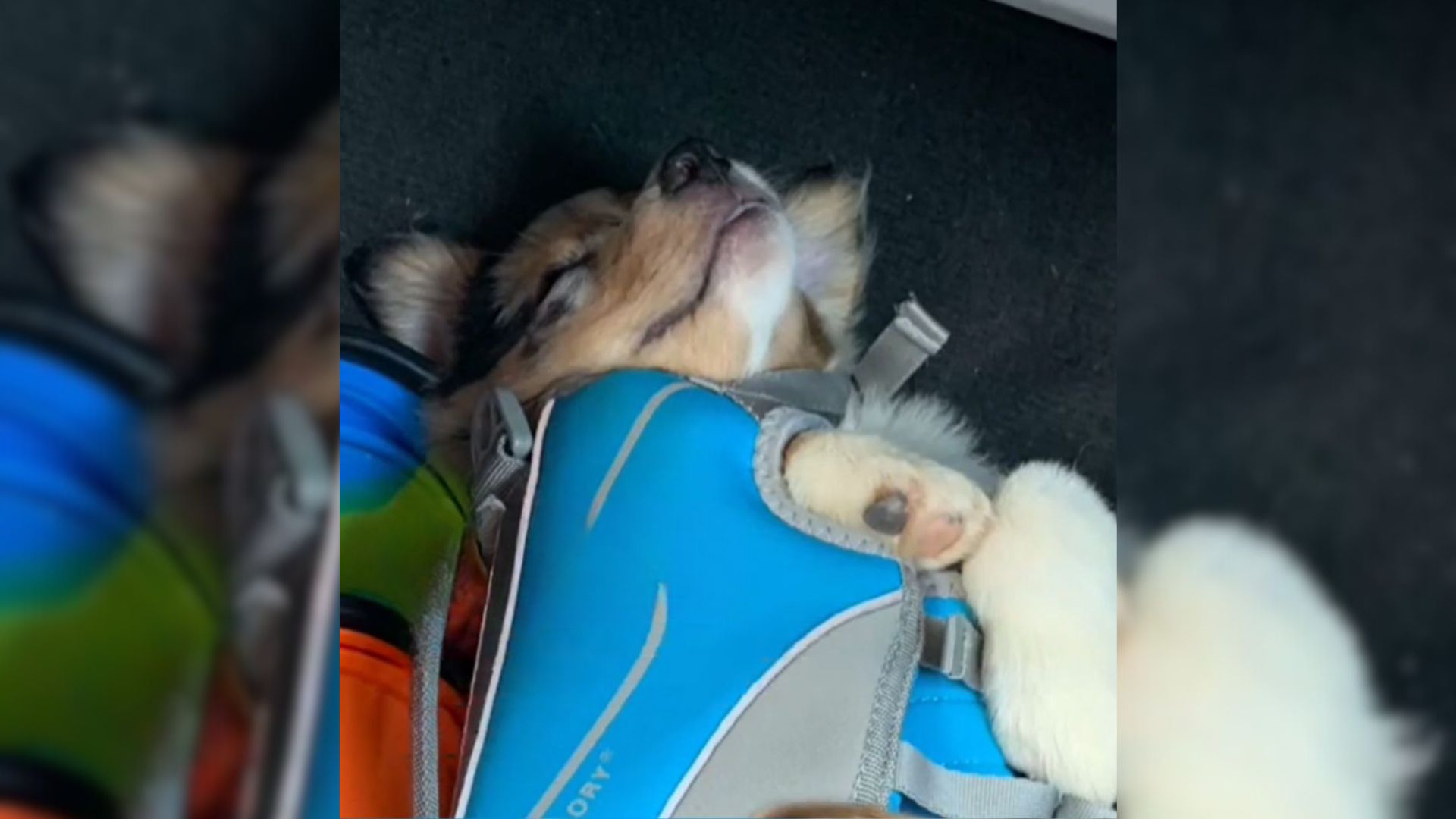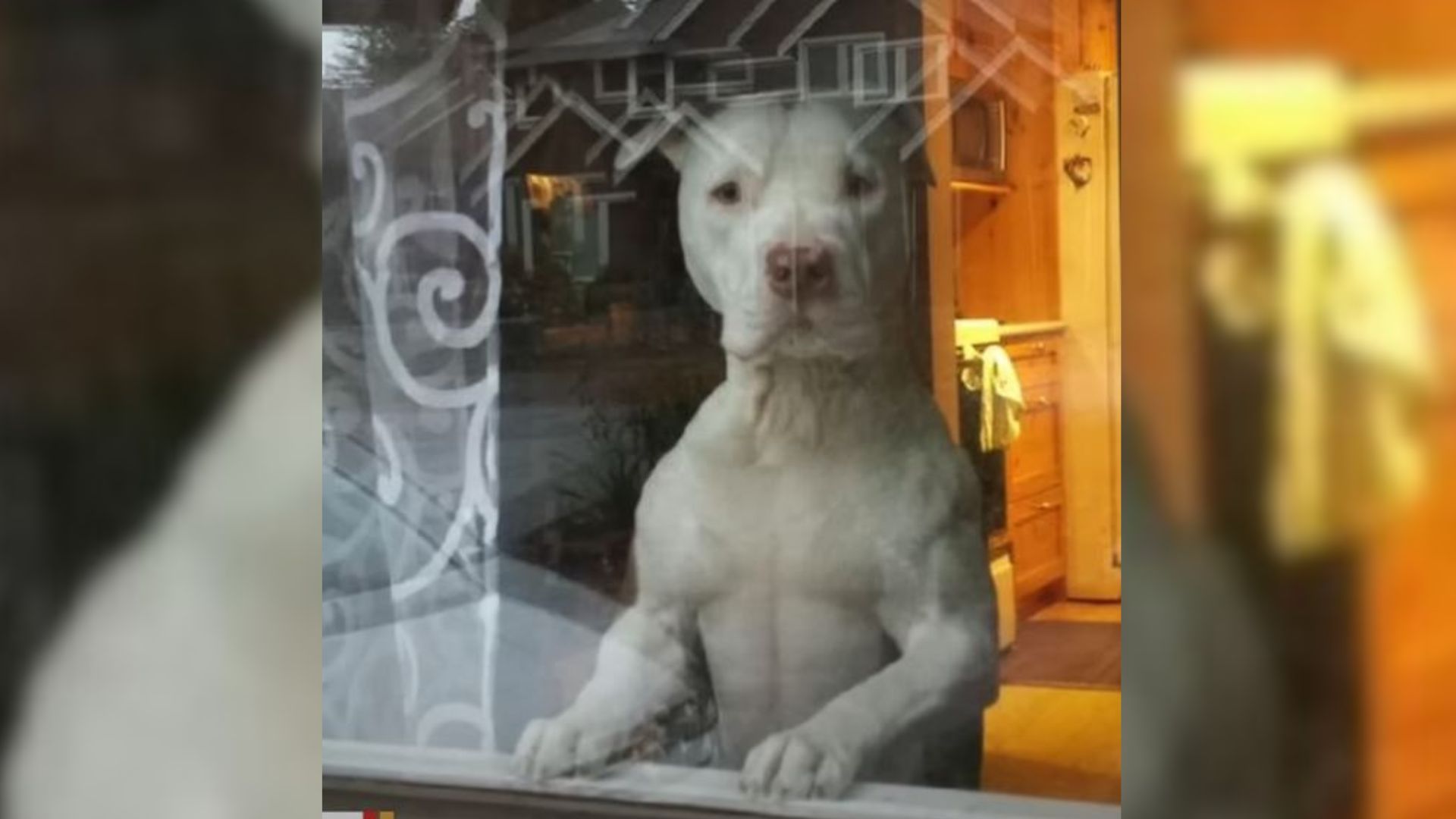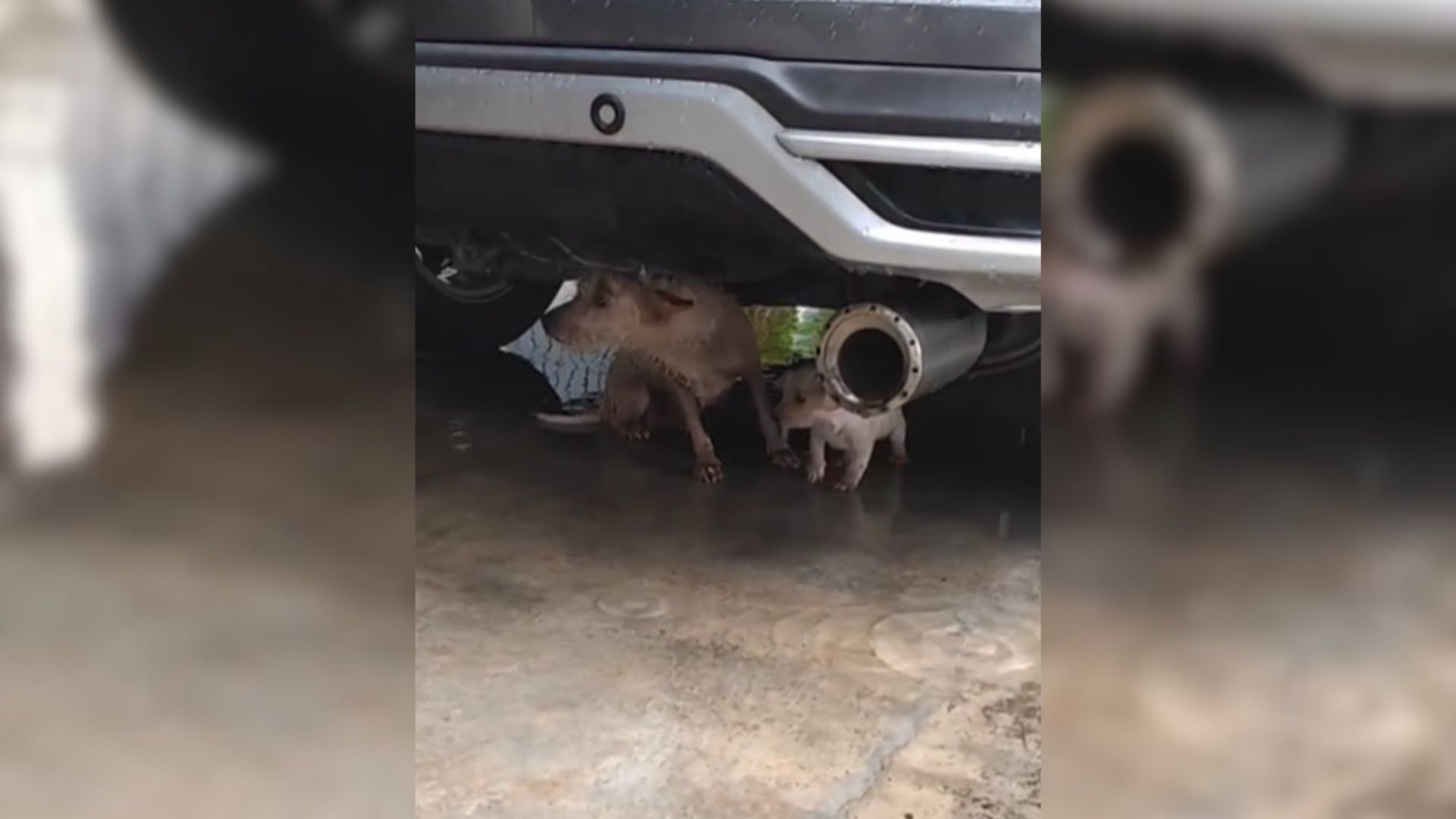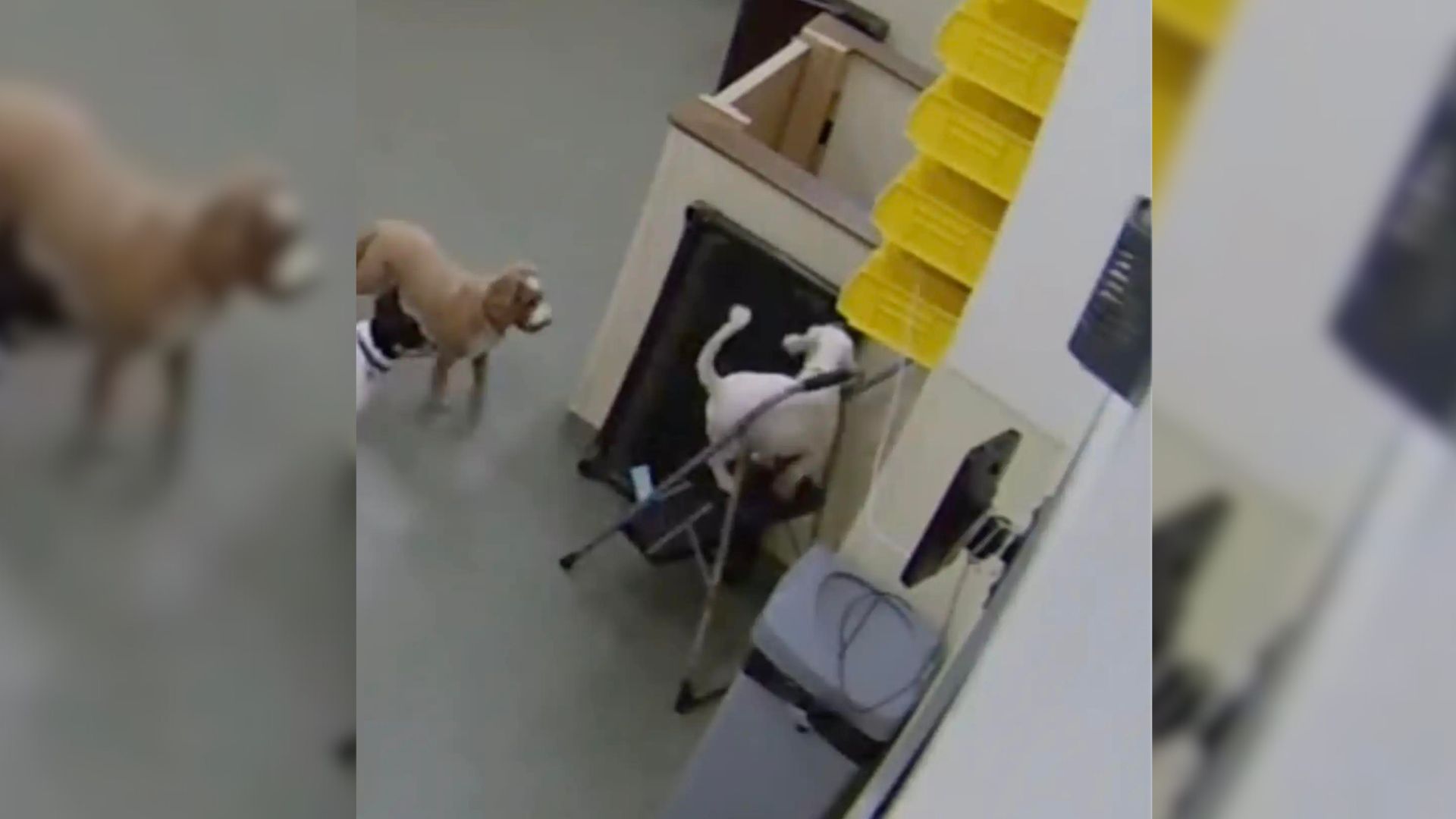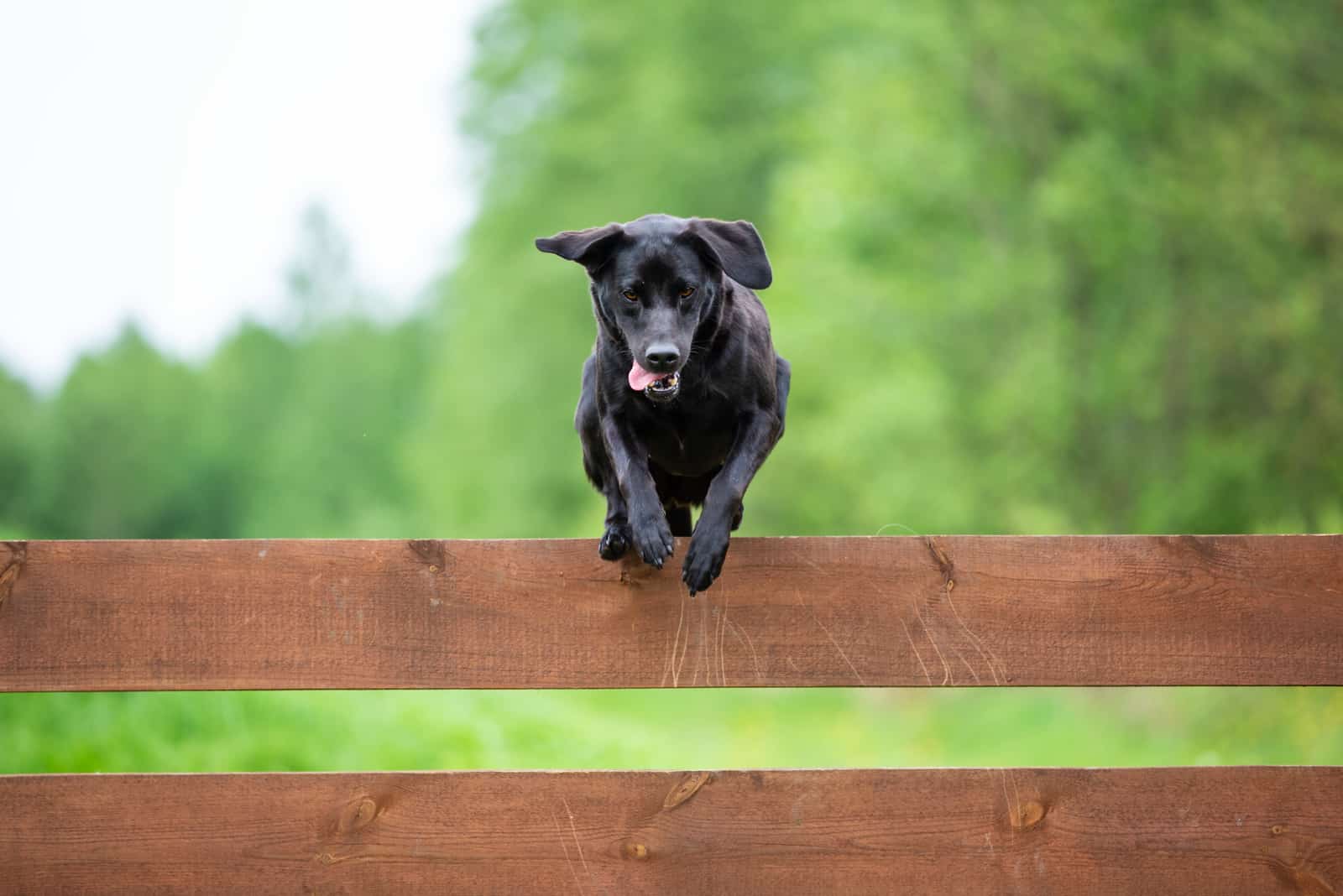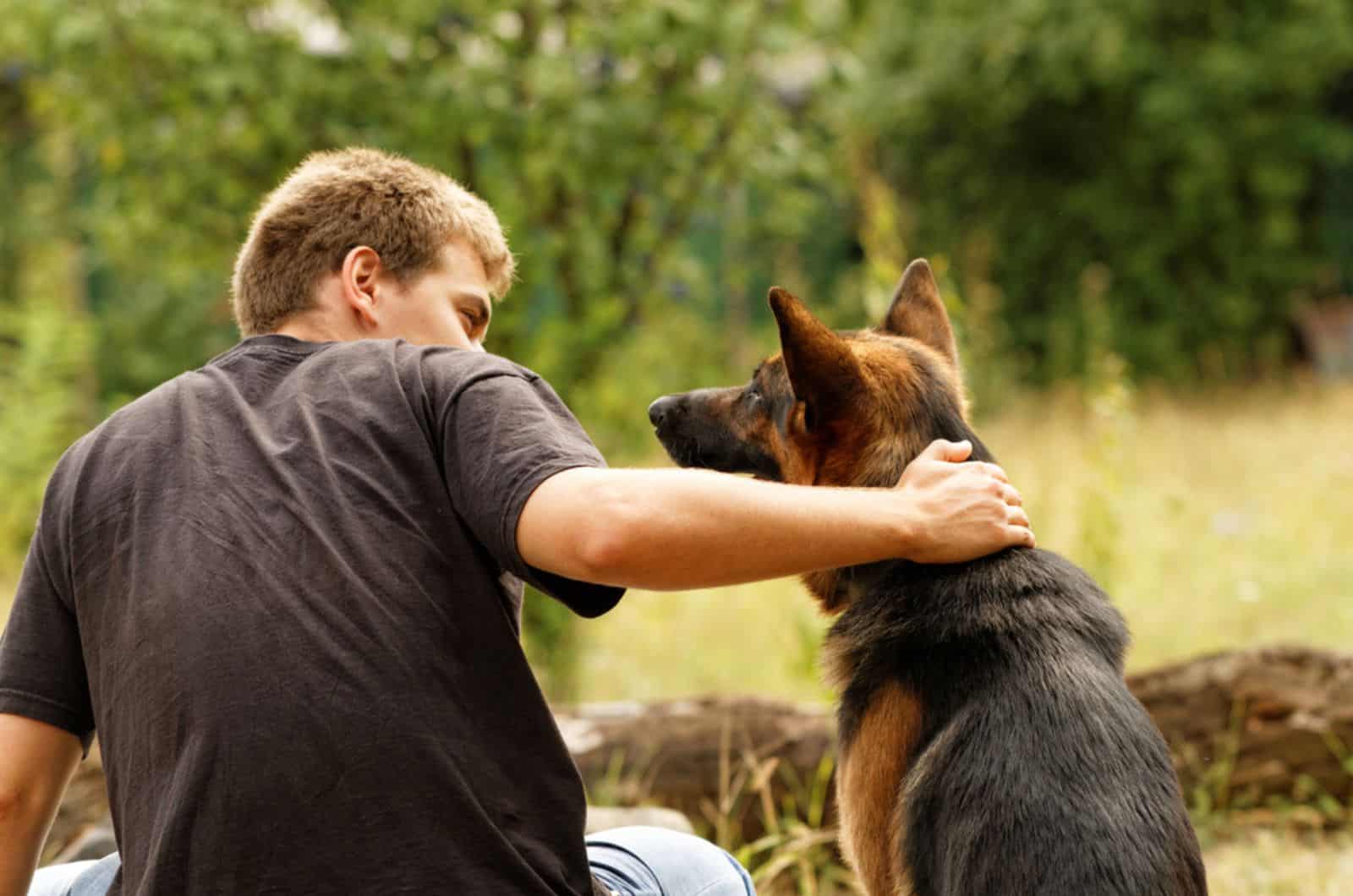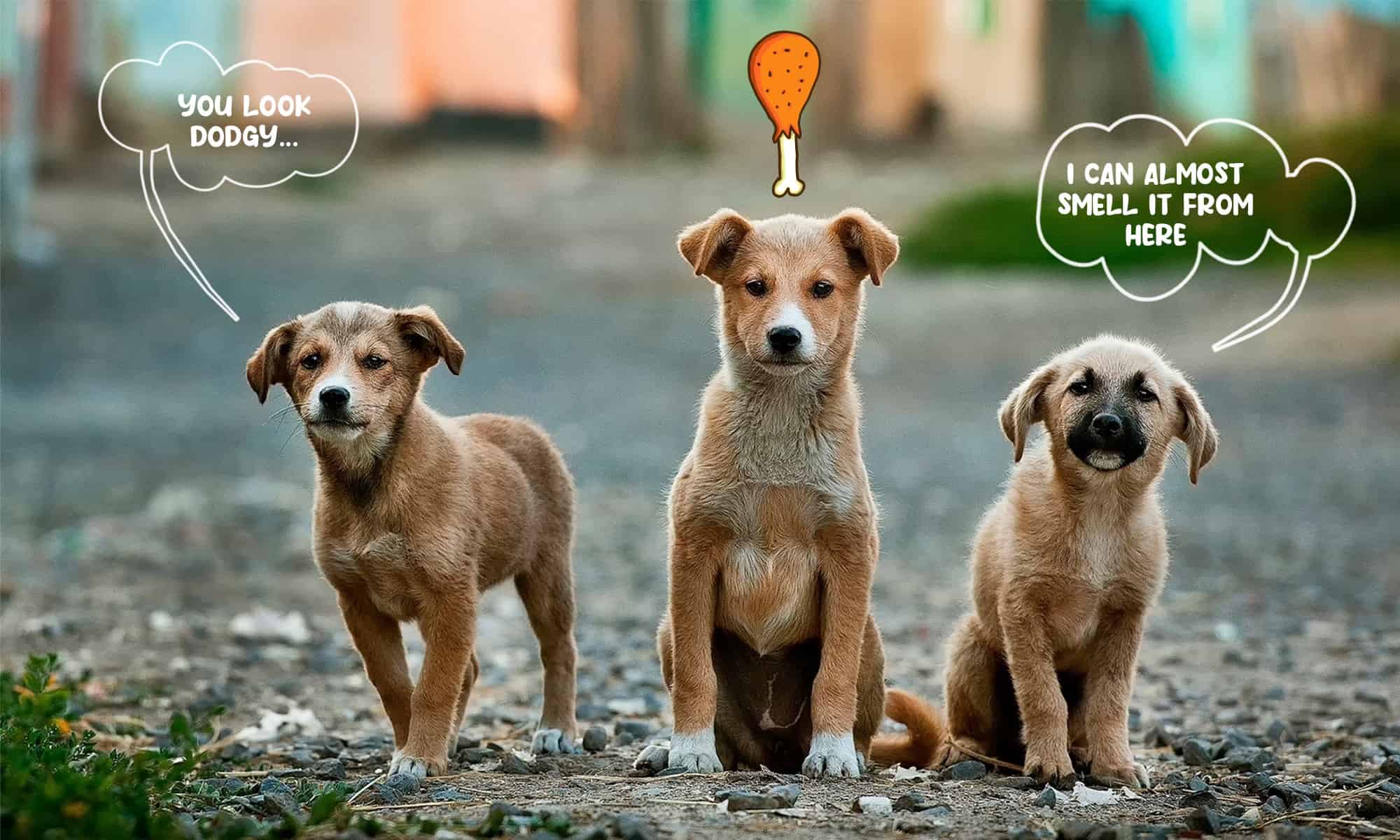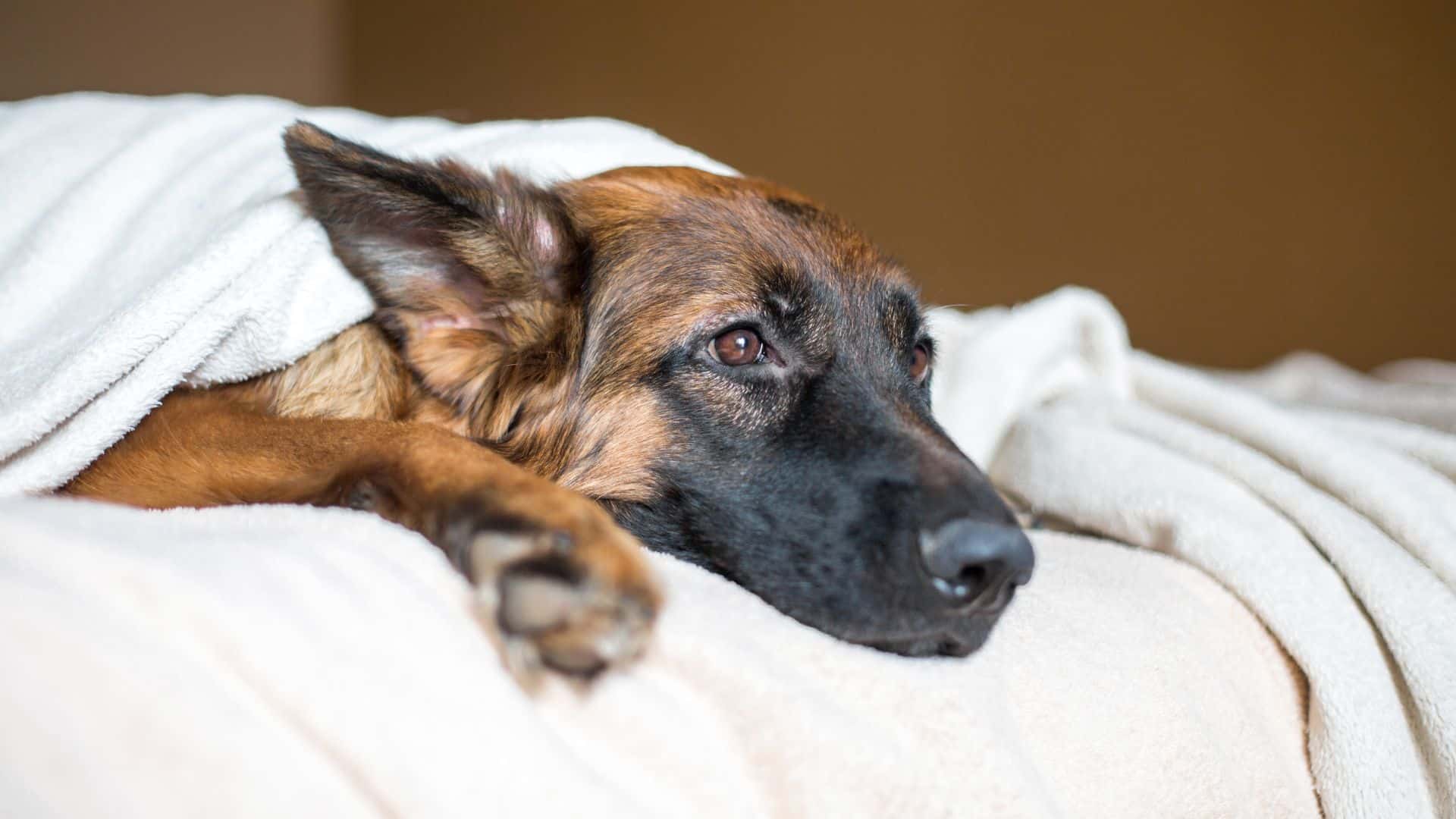Seriously, what’s up with these two? I feel like my pets fight all the time! Why do cats and dogs hate each other so much? Did I do something wrong to trigger this behavior?
Every cat and dog owner probably asks the same things when their pets disagree. The truth is, there’s nothing unusual with this behavior. Cats and dogs haven’t stood each other for centuries; hence, the old saying.
But, what’s really going on with them? Why are they fighting? Is one species the angel and the other one the devil? Which is which?
Let the ball of yarn untangle, and the squeaky toy squeak…
So, Why Do Cats And Dogs Hate Each Other?
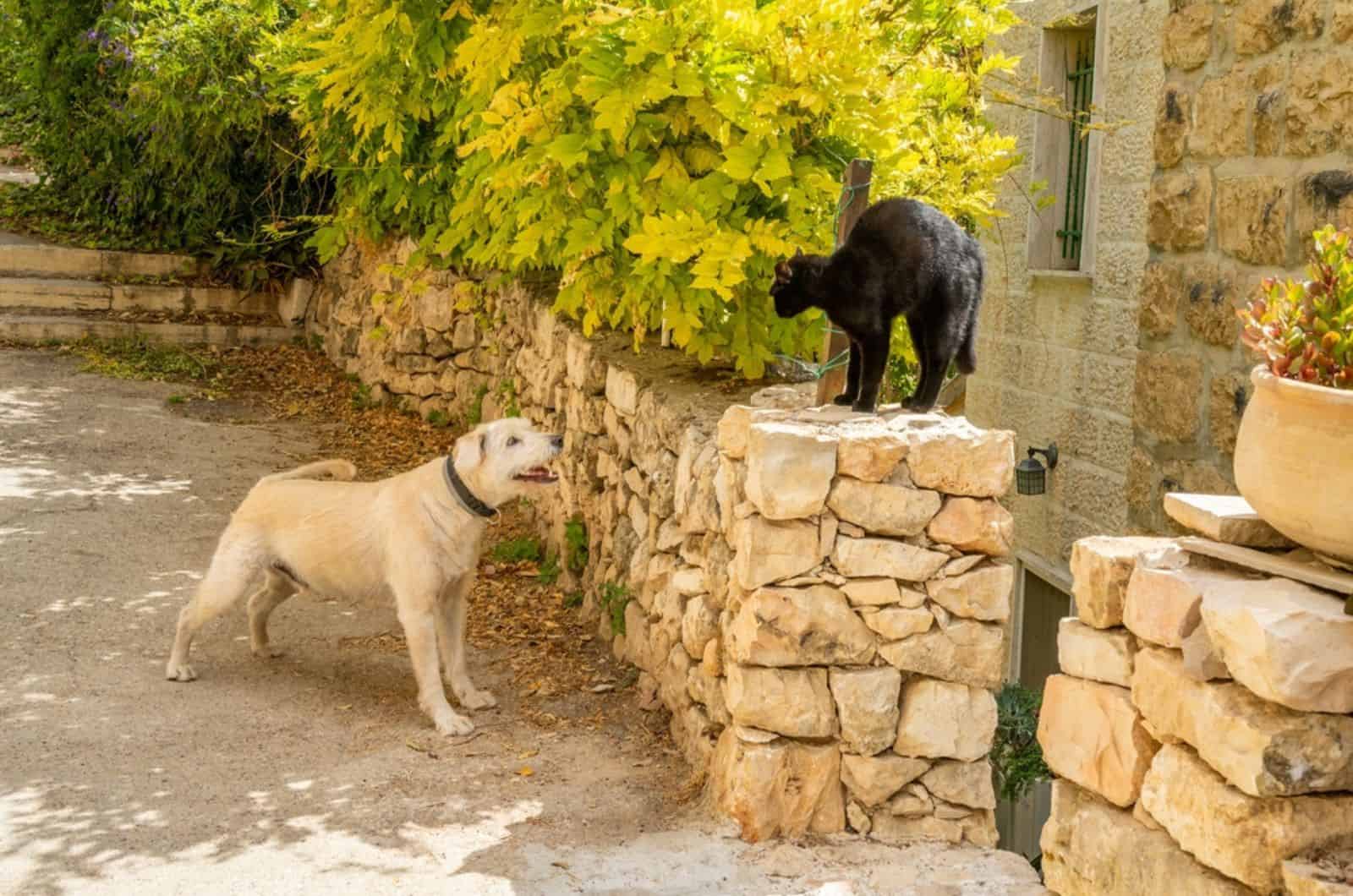
They don’t really hate each other. The difference between the species is very significant – they must disagree on lots of things, including living together.
I hope the following four reasons will help you figure out the real story behind the cat and dog animosity!
Origin Differences
Before we go in depth on the reasons why cats and dogs hate each other, we must go back to the beginning. Everything seems to go back to where it started.
Cats and dogs have been around humans for many, many years. Okay, we all know it’s centuries… not years. But, potato-potato! Even the first specimens of these animals were notably different from each other.
The first canines were direct descendants from wolves. They were domesticated quite easily, and taught to stick around humans for food, comfort, and shelter. Even back then, the first dogs were quite friendly and sociable, which is not something that could be said about cats.
Cats come from ancient Egyptian wild cats. They were slowly domesticated into felines because they stuck around people, a.k.a., their food source. So, yes… the claim that cats like us only because we give them food is absolutely justified.
Imagine ourselves back in the ancient times… What would happen if a certain someone had a first feline and a first dog around all the time? Would these two compete? Absolutely!
The battle is an eternal one. Cats and dogs aren’t natural enemies like wolves and sheep are. Instead, they’re competitors, always making sure they get more than the other.
The Language Barrier
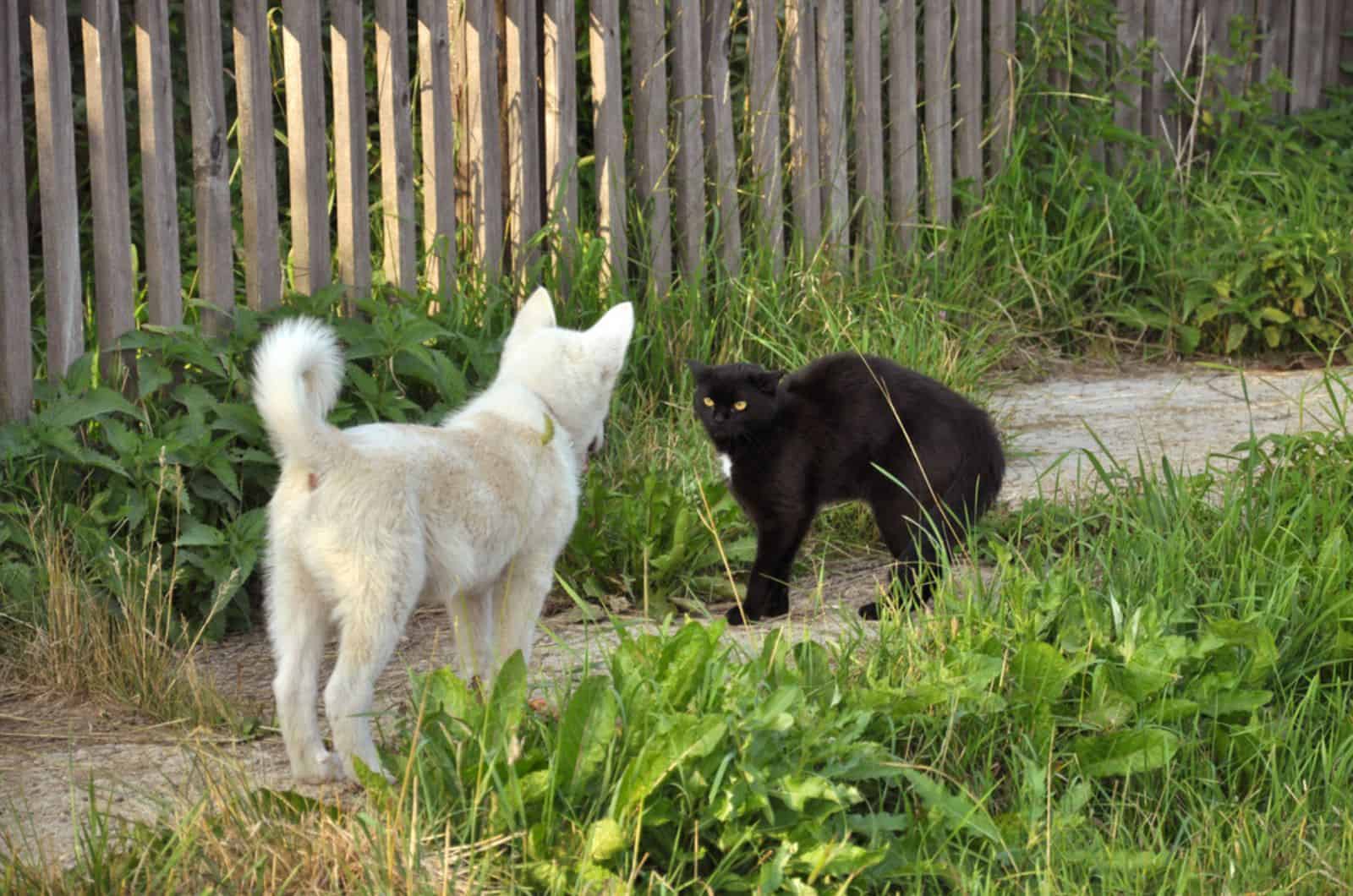
Believe it or not, animals communicate on a far more developed level than we originally thought. Of course, they don’t talk like we do (or, do they?), but they communicate with body language.
As different species, cats and dogs have different languages.
Cats don’t usually wag their tail like dogs do when they’re excited or happy to see you. Instead, they gaze into your eyes and blink slowly in approval.
Dogs are vocal beings, but they don’t bark all the time if they’re properly socialized. But, cats meow on all occasions; when they’re bored, happy, curious, anxious, annoyed, etc. This is one of the biggest significant differences between the two.
There are many other differences between cats and dogs and their way of communicating. In most cases, everything a cat does, a dog does the complete opposite, and vice versa.
It’s Really Not A Competition… Or, Is It?
As I mentioned earlier, ancient cats and dogs used to compete with each other for food, attention, shelter, etc. There are little to no differences in this behavior today. Cats and dogs will still compete to win their owner’s attention or to get table scraps.
However, this is completely normal and natural. Even animals of the same species will compete with each other if they feel threatened. This is a standard response, and there’s no one that does it better than cats and dogs.
Both species are quite territorial, so if they’re battling for almost anything in the house, they will battle for more territory, too. Of course, that territory includes you!
Behavioral Differences
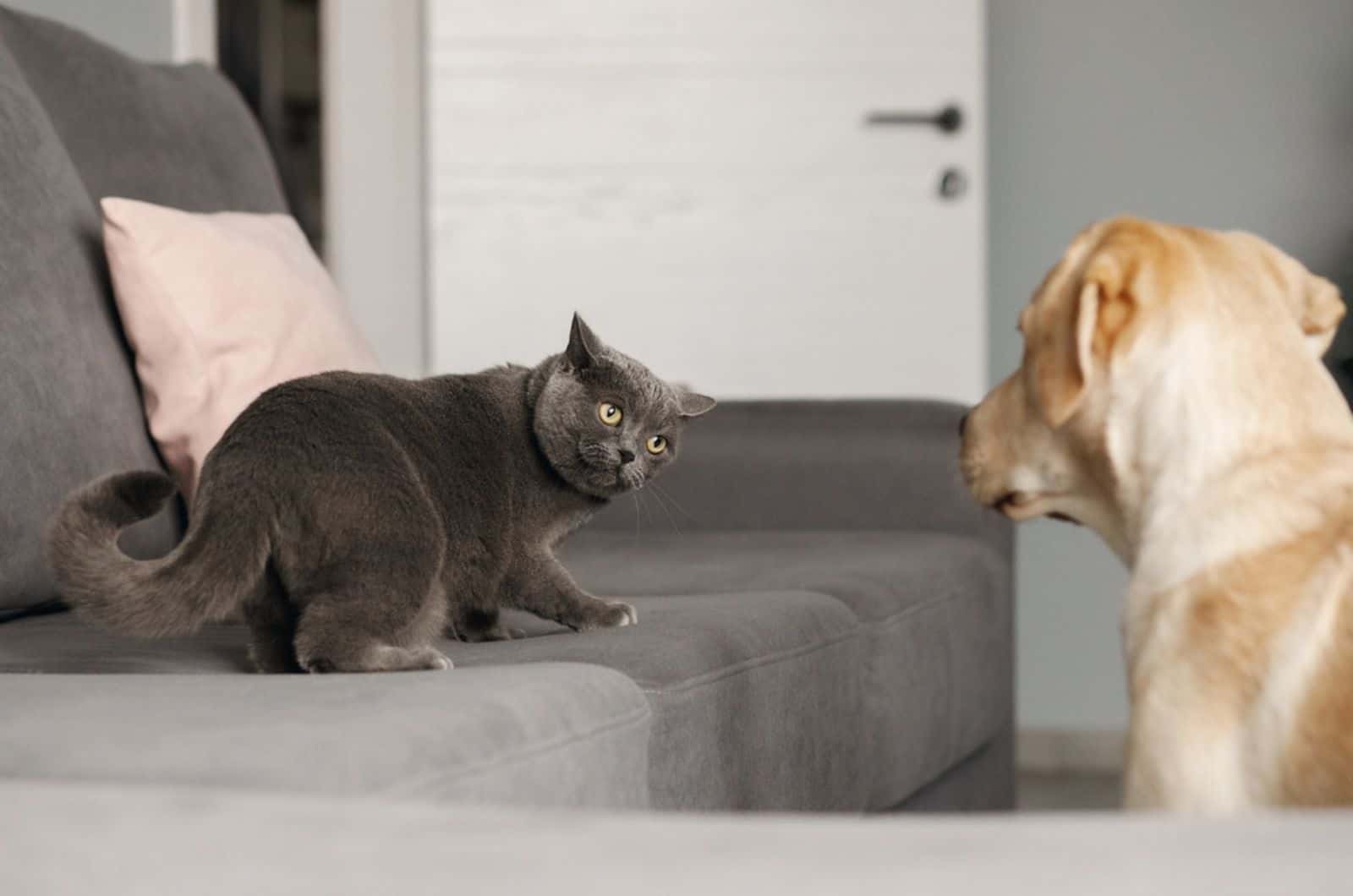
When I mentioned the language barrier and the difference between the two species, I listed some things that could also serve as behavioral differences.
Generally speaking, cats and dogs are very similar, and yet so different. Dogs are known as laid back and cheerful animals. They love human company, and thrive when they are around people they love. Only a handful of breeds like the Shiba Inu like being left alone for a significant amount of time.
On the other hand, cats enjoy their solitude. They don’t like being petted too much or bothered with lots and lots of kisses. Snoozing in the corner and silently hating everyone around them is what cats do, right?
Well, that’s also one of the reasons why dogs are better than cats!
Cats aren’t as emphatic as dogs are. It’s not unusual for our canine buddies to come rushing in, trying to comfort us when we’re feeling down. A cat wouldn’t do that without a reward afterwards.
Tips On Making Your Cat And Dog Get Along
As always, there are exceptions to the rule. Cats and dogs can get along with each other. This is not a black or white situation. Not all cats are competitive haters, and not all dogs are cheerful clowns. We must always leave room for the animal to show his or her individual personality.
If you’re planning on getting another pet in your household, whether a dog or a cat, you must prepare the other animals for the change. Never bring a counterpart animal into a home so abruptly!
I suggest you continue with the reading, and check out these couple of helpful tips I have for you. They will surely ease your life with dogs and cats.
Take It Easy
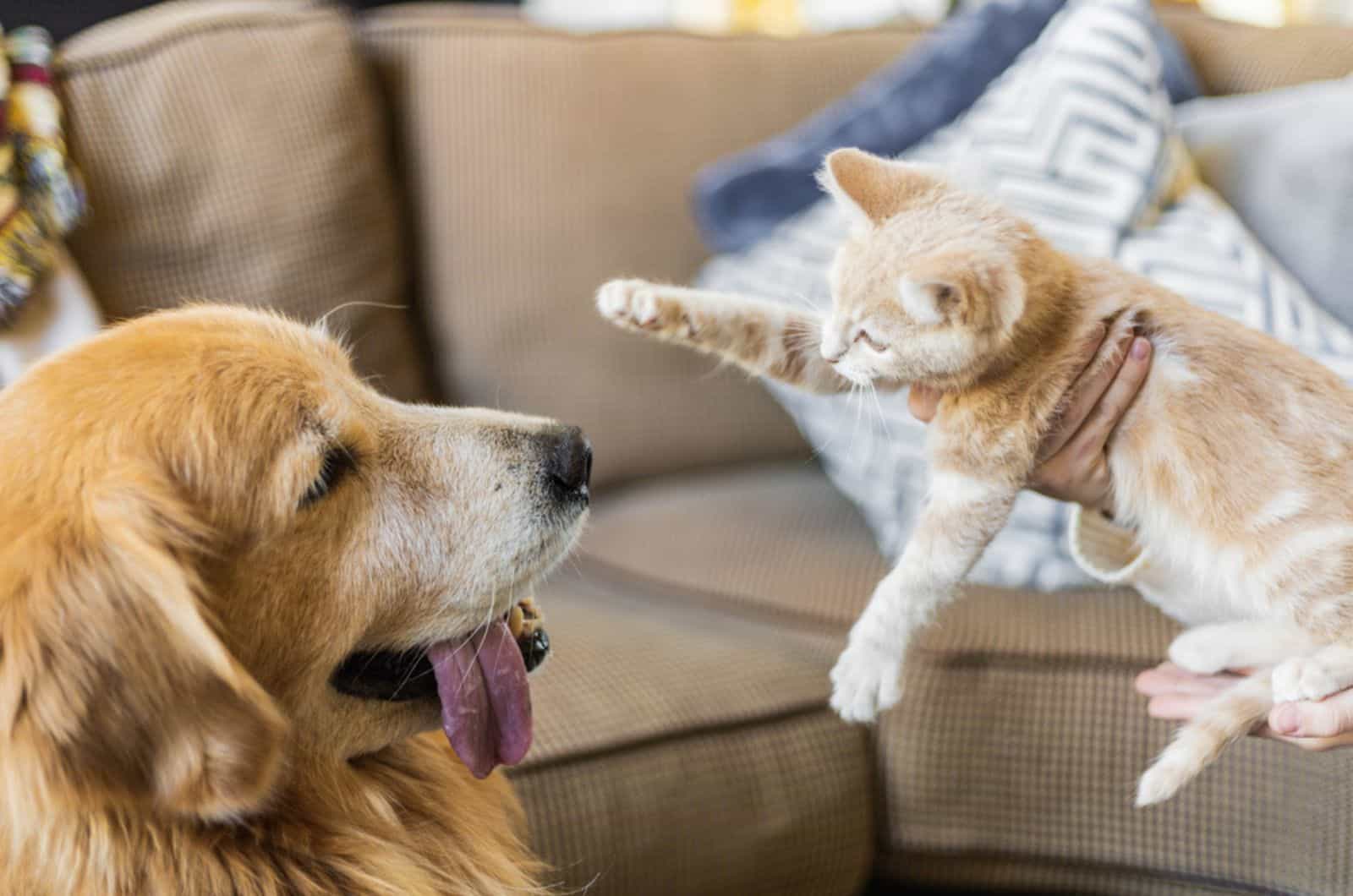
Everything should be taken gradually, step by step. Don’t bring a cat or a dog into a room, especially not without a carrier. Your senior pet, whether it’s a cat or a dog, might feel in danger.
Let them get used to the fact that there’s a new scent in the house. Both cats and dogs pick up smells easily, and they use them to figure out who is who.
I recommend you keep the two animals apart for a while, preferably in different rooms, and let them sniff each other through closed doors. You can also bring their toys or blankets to each other to introduce them to the scent of the other animal.
If the scent introduction goes without issues, you can proceed to leave the door open in order to let them explore the house slowly. Eventually, they will run into each other, so make sure you’re there to react if it’s necessary.
Give Them Time And Space
As I said, give the animals their own separate rooms at first, and don’t change them. This will help the new animal get used to the surroundings without any major adaptation problems.
And, don’t rush it. Give them time to get used to the scent of the other animal. The adaptation can’t happen overnight, and it shouldn’t!
If you want success, you must wait for it.
Socialize Your Dog
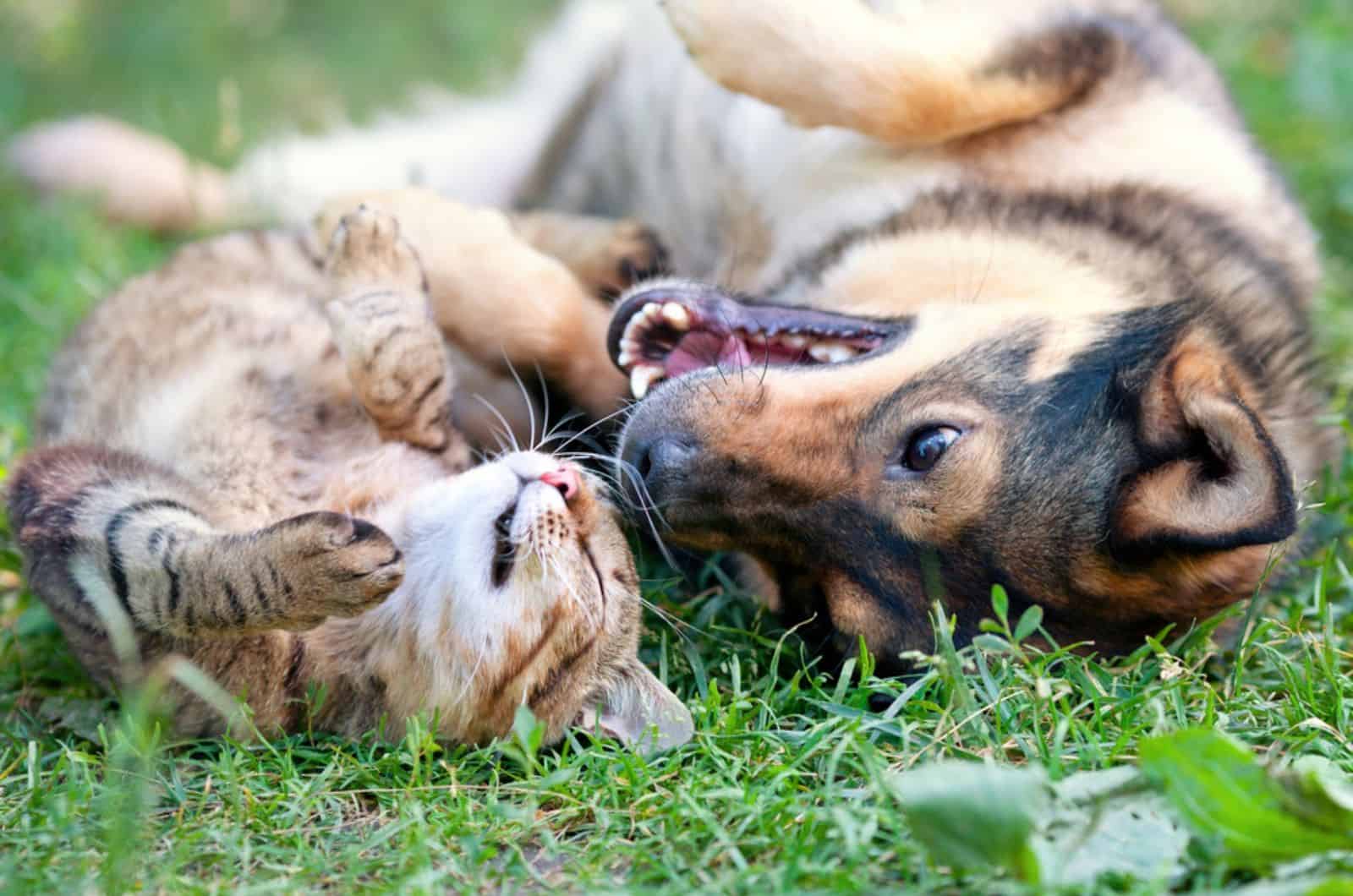
No matter if you already have a dog or bring one into your home, the dog must be socialized. Of course, obedience training is another must, but that happens gradually.
Socialization is something that starts from day one of their life. Every good breeder must ensure that puppies are friendly towards strangers and other animals, and don’t react with panic or aggression when found in new surroundings or surrounded by unusual scents.
Only a socialized dog can live a normal life with a feline friend inside his home.
Don’t Provoke Or Make Them Jealous
You can also be the reason why your cat and dog hate each other. As I mentioned before, there is a competition between the two, mostly for your attention.
Don’t ever provoke your animals by showing that you have a favorite pet. Both species can be sensitive (dogs more), and they will end up hurt. Also, the other pet might get hurt because the favorite one could attack the other one as a sign of dominance.
A pet that’s not a favorite can also attack the other because he’s revolted and angry.
Always provide the same amount of love and cuddles to each pet.
Provide Plenty Of Toys And Food
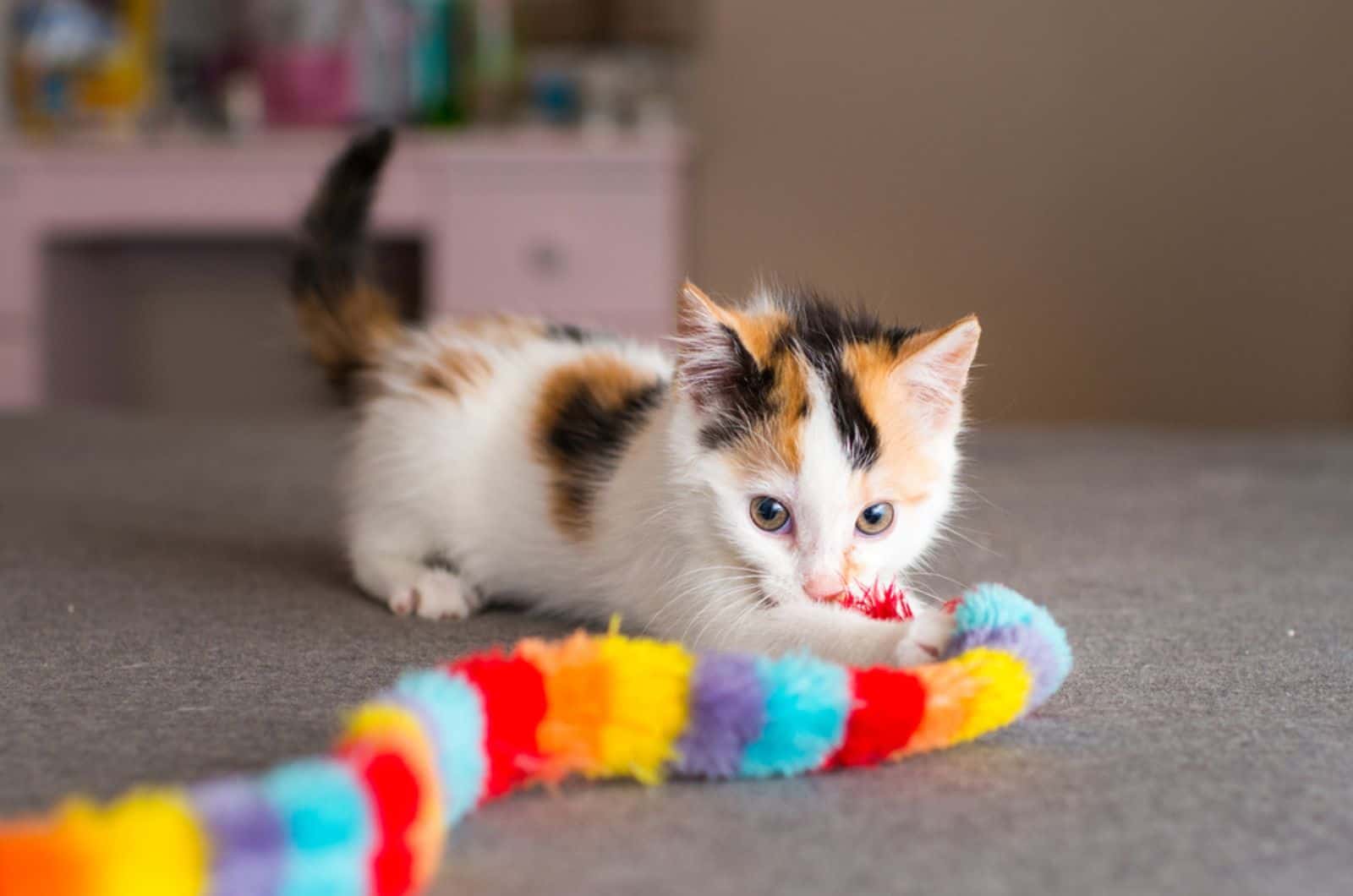
Something else you should provide are toys. Don’t make them share toys. For starters, dog and cat toys aren’t the same at all. And, no cat would want to play with a drooly squeaky ball!
Give each pet their own toys, food, bed, blanket, bowl, etc. Don’t make them share anything!
Pick Similar Personalities
There are some dog breeds that don’t get along with cats at all no matter how well you socialize them. It’s not that they’re aggressive or anything. It’s just that they’re a specific dog breed that does not get along with feline temperament.
Think twice before you bring a herding dog to a home with a feline. Their herding behavior might intimidate your cat and she would end up hurt. Herding dogs herd for fun, and because they believe it’s the right thing to do. Cats don’t understand that.
Instead, pick breeds with friendly temperaments like Maltese, Mastiffs, Doodles, etc.
Final Words
I bet you’ll never ask the question, why do cats and dogs hate each other, again.
Now that you know the answer, it’s so much simpler to understand true cat and dog behavior. As you could learn, they don’t hate each other; they just disagree because they’re so different.
Even animals with different behavioral patterns can live with each other. You just have to give them a chance, and take things slowly… one step at a time.

